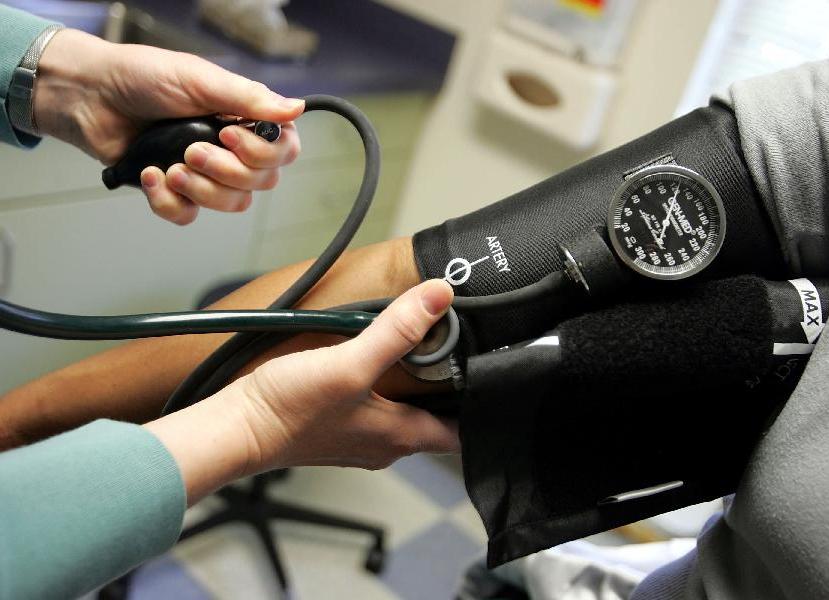-
Tips for becoming a good boxer - November 6, 2020
-
7 expert tips for making your hens night a memorable one - November 6, 2020
-
5 reasons to host your Christmas party on a cruise boat - November 6, 2020
-
What to do when you’re charged with a crime - November 6, 2020
-
Should you get one or multiple dogs? Here’s all you need to know - November 3, 2020
-
A Guide: How to Build Your Very Own Magic Mirror - February 14, 2019
-
Our Top Inspirational Baseball Stars - November 24, 2018
-
Five Tech Tools That Will Help You Turn Your Blog into a Business - November 24, 2018
-
How to Indulge on Vacation without Expanding Your Waist - November 9, 2018
-
5 Strategies for Businesses to Appeal to Today’s Increasingly Mobile-Crazed Customers - November 9, 2018
1 in 4 Medicare Patients Use Blood Pressure Meds Incorrectly
The study, published Tuesday in the CDC’s Morbidity and Mortality Weekly Report, analyzed 18.5 million Medicare Part D enrollees in 2014, to find that more than a quarter of these either skipped doses or stopped taking the drugs completely.
Advertisement
Nearly 5 million Medicare enrollees are not taking their blood pressure medication as directed, exposing themselves to the risk of experiencing heart disease, stroke, kidney disease, and in some cases, even death, a new report from the U.S. Centers for Disease Control and Prevention (CDC) has shown.
Tom Frieden, CDC director, called the findings troubling and adds that a lot of patients labor under the misconception that their blood pressure is normal as they don’t experience any symptoms. Although a healthy lifestyle and exercise can help, the only solution for this condition is taking blood pressure medicine. Diuretics, also known as water pills are abandoned more often compared to other types of drugs. Lead researcher Matthew Ritchey, an epidemiologist with the CDC’s division for heart disease and stroke prevention, reportedly said, “This is another call to action for this part of the country, knowing that they are typically at higher risk for having strokes and heart attacks”.
According to a report in UPI News by Stephen Feller, “About 5 million people over age 65 are not managing their high blood pressure correctly, report researchers at the U.S. Centers for Disease Control and Prevention, which can increase risk for heart disease, stroke, kidney disease and death”.
The agency asks the health care system to assure that all individuals understand the importance of taking the prescribed medicine for blood pressure and regular checks that could establish the evolution of the disease and the future steps needed to be taken. North Dakota, Wisconsin, and Minnesota have the highest rates of people who do take their medicine as directed.
That’s even if the patient was at the doctor’s office for a reason unrelated to blood pressure – having a mole checked by a dermatologist, say.
For more on controlling high blood pressure, visit the American Heart Association.
The federal government is also providing resources to all states and Washington, D.C., to prevent chronic disease, including heart disease and stroke; helping states track medication adherence; and encouraging prescription drug plans to improve medicine use through the Medicare Star Ratings program.
To learn more about heart disease and stroke, visit http://www.cdc.gov/heartdisease and http://www.cdc.gov/stroke.
People with high blood pressure experience symptoms such as dizzy spells, nosebleeds, and tiresome headaches.
For example, clinicians should check patients’ blood pressure regularly and simplify treatment by prescribing 90-day refills and combination medicines.
Advertisement
CDC works 24/7 saving lives and protecting people from health threats to have a more secure nation.





























